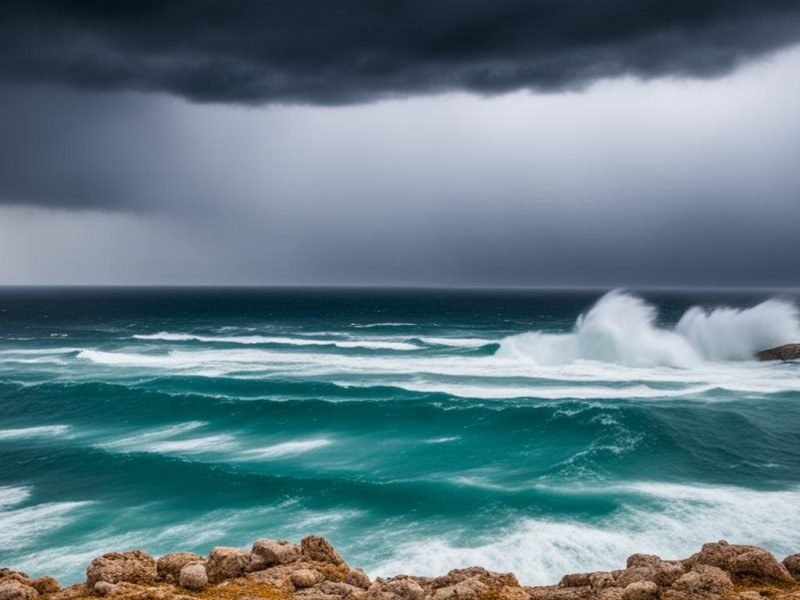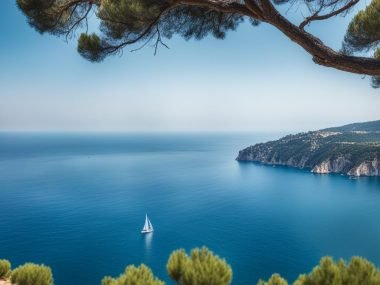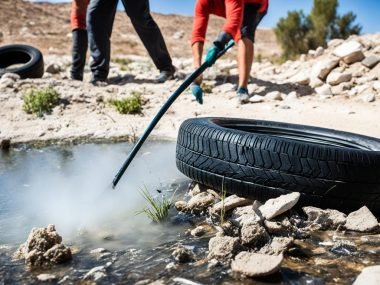Have you ever thought, “Does Tunisia get hurricanes?” This question is important considering today’s weather changes. Unlike the Atlantic’s hurricanes, the Mediterranean sees “medicanes” (Mediterranean hurricanes). These are unique storm systems.
Tunisia is somewhat shielded by its location, avoiding the usual hurricane dangers found in places like the Caribbean and Gulf of Mexico. However, it’s not totally safe from storms. For example, Cyclone Ianos in September 2020 showed that medicanes with Category 2 strength can occur, posing a risk to Tunisia.
True hurricanes are rare in Tunisia, but intense tropical cyclones, known as medicanes, are possible. Knowing the local climate and safety measures is important. These events can lead to heavy rain and flash floods, even though they’re uncommon in Tunisia.
Key Takeaways
- Tunisia’s hurricane risk is lower due to its geographical location.
- Medicanes are Mediterranean phenomena similar to tropical cyclones.
- Cyclone Ianos in 2020 highlights the presence of medicane risks.
- Medicanes can cause life-threatening conditions despite their rarity.
- Understanding local climate patterns is crucial for weather preparedness.
Understanding Tunisia’s Climate and Weather Patterns
Tunisia’s weather shows us what North African climate is like. It’s by the Mediterranean Sea, making its weather typical for the area. Yet, Tunisia has its own weather surprises. Things like Saharan cyclones and Mediterranean hurricanes play a part.
The Geographical Factors Influencing Tunisian Weather
Geography matters a lot for Tunisia’s weather. The north is by the sea, so it has a milder climate with rainy winters. But the south stretches into the Sahara and is very dry. This big difference changes the storms in Tunisia. The north has milder weather, while the south deals with the Sahara’s hot winds.
Comparing North African Climate Anomalies
The climate in North Africa is mostly dry. But sometimes there are Mediterranean hurricanes. They are unusual and make the weather unpredictable. These storms don’t often hit Tunisia directly. Its location and climate help protect it.
Looking at Saharan cyclones helps us understand Tunisia’s weather. These cyclones from the Sahara affect North Africa differently than the Mediterranean storms. They add to the region’s varied climate.
In the end, Tunisia sits between desert and milder climates. This position shapes its daily weather. It also provides a unique view into how geography and climate affect storms in North Africa.
Mediterranean Hurricanes: Separating Facts from Myths
Mediterranean hurricanes, or medicanes, blend science with local tales. Like tropical cyclones, they uniquely affect Tunisia and nearby areas. This mix impacts local weather patterns deeply.
What Are Medicanes and How Do They Form?
Medicanes mimic tropical storms but form in the cooler Mediterranean Sea. Their specific atmospheric conditions set them apart, making them distinct. Unlike typical hurricanes, they follow their own path of creation and growth.
Categorizing Storms: The Mediterranean Tropical-Like Cyclones
Experts often argue over how to classify medicanes. They share hurricanes’ power but don’t fit standard tropical cyclone categories. Between 1947 and 2011, around 100 such storms were recorded. Some had hurricane-like intensity, showing the Mediterranean’s weather peculiarity.
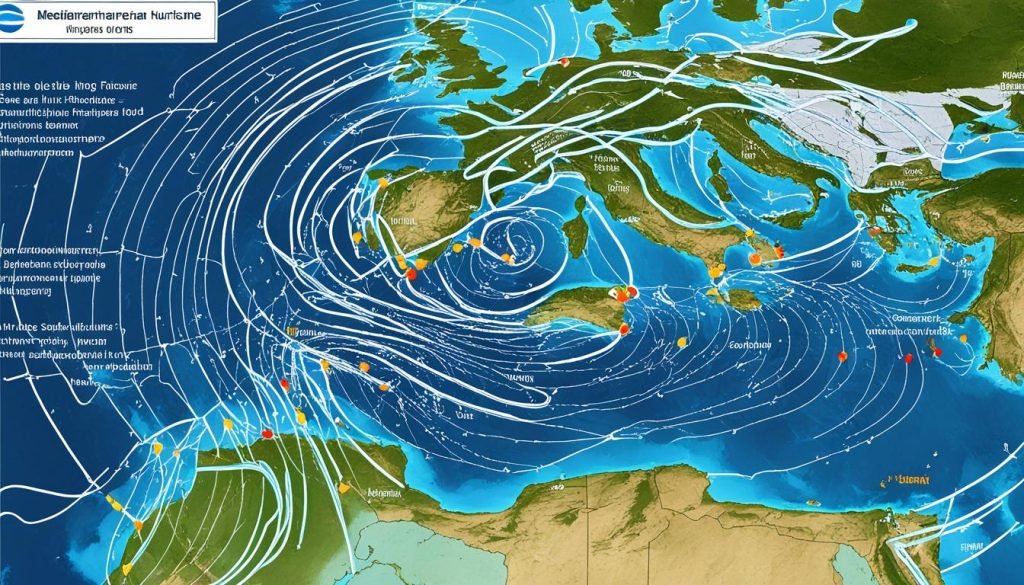
| Year | Storm Name | Max Winds (km/h) | Impact Region |
|---|---|---|---|
| 1996 | Celia | 110 | Western Mediterranean |
| 2006 | Chris | 90 | Central Mediterranean |
| 2011 | Rolf | 100 | South-Eastern France |
| 2020 | Ianos | 120 | Greece |
Understanding medicanes is key for effective response and preparation. Raising awareness and researching these storms improves forecasts and safety plans in Tunisia and beyond.
Does Tunisia Get Hurricanes?
When we look at the chances of hurricanes in Tunisia, we dive into Tunisian weather extremes. We also explore how likely it is for North African tropical storms to happen. While Tunisia lies in a zone where many weather patterns occur, it hardly ever sees hurricanes as defined by the Saffir–Simpson scale.
The chance of hurricanes hitting Tunisia is really low. This is because of the climate and geographical features of the Mediterranean. The sea temperature and air conditions don’t support hurricanes like those in the Atlantic.
| Weather Phenomenon | Frequency in Tunisia | Impact Level |
|---|---|---|
| Tunisian Weather Extremes | Occasional | Moderate to High |
| North African Tropical Storms | Rare | Low to Moderate |
| Hurricane Risk | Very Low | Minimal |
By understanding Tunisian weather extremes, we learn why Tunisia and North Africa often avoid big hurricane damage. So, hurricane risk Tunisia is really small. This makes it unlikely for such big storms to hit there.
Historical Occurrences of Severe Storms in Tunisia
Tunisia is mostly known for its pleasant Mediterranean weather. But there have been times when it faced extreme weather. Knowing about Tunisian weather extremes, its hurricane risk, and preparedness is crucial for people living there and for policy makers.
Notable Tunisian Weather Extremes Over the Years
Tunisia has seen many extreme weather events in its history. These events are not hurricanes like the ones in the Atlantic. But they are still very risky. They can bring lots of rain, cause floods, and damage properties. It shows why it’s important to be ready for Tunisian weather extremes.
Analyzing Tunisia’s Hurricane Risk and Preparedness
Tunisia is by the Mediterranean, which means it doesn’t get many typical hurricanes. But it does get medicanes, which are like hurricanes. This means it’s important to be ready for these rare but dangerous storms. Making strong plans for monitoring and responding to these storms helps keep people and buildings safe.
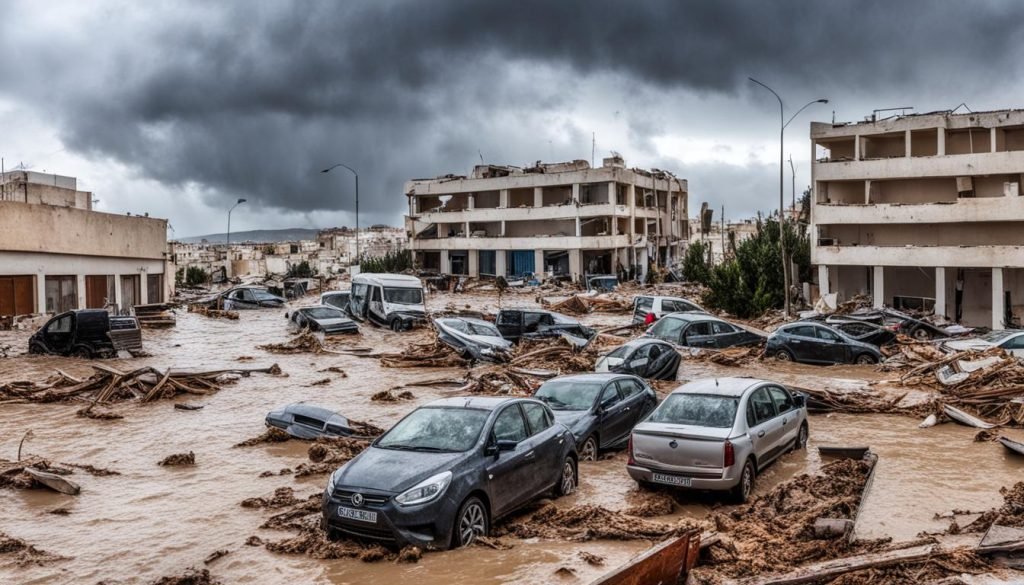
Medicanes might not be common in Tunisia like in other places. But they still need serious attention and readiness. Being aware and having a good plan is key to managing these risks.
Impact of Climate Change on Tunisian Weather Extremes
In Tunisia, climate change is causing changes we can’t ignore. It affects weather, economy, and society. Tunisia, known for its history and coast, now faces environmental challenges. These challenges need fast action, focusing on renewable energy and sustainability goals.
The EIB Climate Survey: Tunisians’ Perception on Climate Change
A climate survey by the European Investment Bank found 84% of Tunisians feel climate change’s impact. Over half say it affects their finances. This awareness is key for action and shows we need to change how we live and make policies.
Renewable Energy Investments and Environmental Sustainability in Tunisia
Many Tunisians want more renewable energy and less fossil fuel. This choice aims to fight climate change and secure a resilient future. The European Investment Bank supports this by funding green projects.
It’s crucial for Tunisia’s government and private sectors to invest in green energy and practices. These actions fight climate change’s immediate effects. They also help Tunisia’s economy and its people in the long run.
Conclusion
The question “Does Tunisia get hurricanes?” isn’t simple to answer. Tunisia doesn’t face the impact of Atlantic hurricanes directly. But, it can get hit by Mediterranean hurricanes, known as medicanes. These storms can be as powerful as the ones in the ocean. However, because of its location and climate, Tunisia doesn’t often experience these events.
Medicanes, although rare, highlight Tunisia’s weather challenges. These unusual events test the country’s ability to adapt and respond. They also focus attention on climate change in Tunisia. With the global climate warming, Tunisia must think about renewable energy and better environmental policies. This change is crucial for sustainable growth.
Tunisia faces both challenges and opportunities as the climate shifts. Unexpected weather events, like Mediterranean hurricanes, may become more common. Tunisia needs to prepare for this future. By investing in renewable energy and strong protective measures, the country can protect its heritage. At the same time, it can ensure a sustainable future for all its people.

